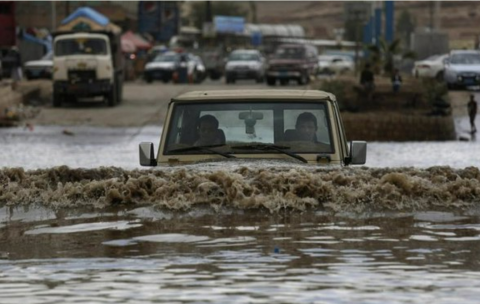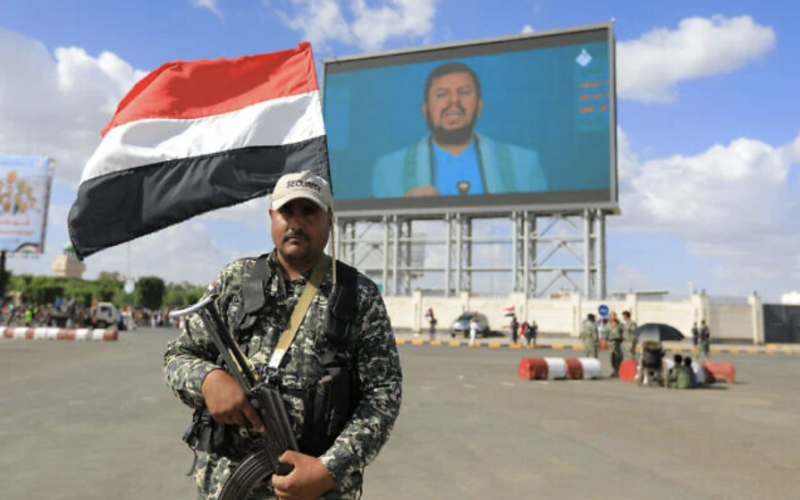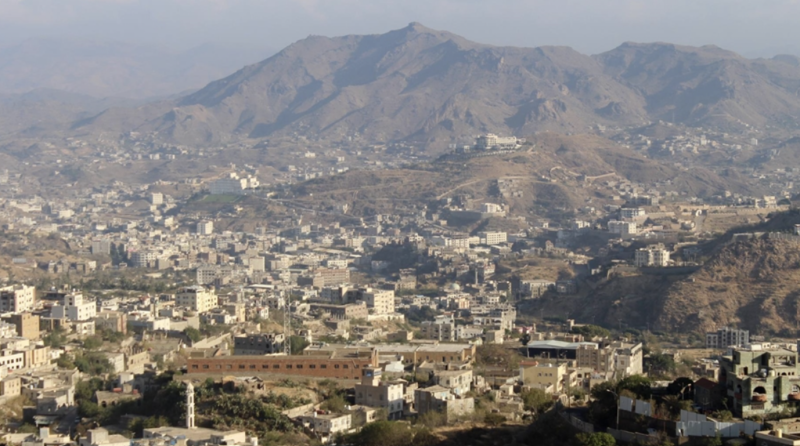Yemen's government repeats call for Arab states to label Houthis a terrorist group


Yemen's government repeated its call for Arab states to label the Houthi militia a terrorist group after the rebels launched a drone attack on Qena port in Shabwa province on Thursday.
“The terrorist attack reflects the aggression of these terrorist militias as they clearly violate all international calls to stop the escalation and targeting of civilian and economic infrastructure,” Yemen's foreign ministry said on Thursday.
“The Yemeni government calls on all countries to take strict measures to classify the rogue Houthi militia as a terrorist organisation to prevent the recurrence of these attacks.”
Houthi military spokesman Yahya Saree said the attack on Qena port was intended as a “warning message” to deter the government from “looting” oil from the country.
The head of Yemen's Presidential Leadership Council (PLC) Rashad Al Alimi called on Arab states to join his country in labelling the Houthis as terrorists during the Arab League summit in Algeria earlier this month.
Mr Alimi said the “terrorist group cause the death of some half a million people, including women and children,” and has displaced “around 5 million throughout the country” and beyond.
The attack on Qena port drew widespread criticism by regional states including the UAE, Saudi Arabia, Egypt and western nations.
A joint statement by the US, UK and France on Thursday called on the Houthis to immediately halt such attacks, saying “economic warfare will only exacerbate the conflict and humanitarian crisis in Yemen”.
A UN-brokered truce in Yemen failed to be renewed in October after successfully reducing violence on front lines for six months after it went into effect in April.
A Yemeni source close to the government told The National the Houthis had begun to flout port procedures and protocols, even before they reneged on a 2019 deal to pay civil servants' salaries through revenue from fuel imports via the port in the Red Sea coastal city of Hodeidah.
“The Houthi militia looted the amounts it received through the central bank branch in Hodeidah and refrained from offering any data on the movement of the account or funds according to the provisions of the agreement, creating the successive fuel crisis,” Saba, Yemen's state-owned news outlet, reported at the time.
However, after the government allowed ships to enter the port under the UN ceasefire agreement, the Houthis created another hurdle for incoming ships.
“After the regular entry of oil derivates into the port of Hodeidah for five months, the Houthis prevented traders from submitting their documents directly to the office of the UN envoy in accordance with the agreed mechanism, which led to the accumulation of ships and a crisis in oil derivatives last month,” Saba said.

Sana'a -- The leader of Yemen’s Houthi rebels warned that any Israeli presence in Somaliland would be considered a “military target,&rd…

Aden -- Yemen’s Southern Transitional Council (STC) said that it is getting closer to declaring an independent state in the south. &l…

Hadramout – The Southern Transitional Council (STC) forces announced Sunday the discovery and seizure of an illegal, makeshift oil refinery h…